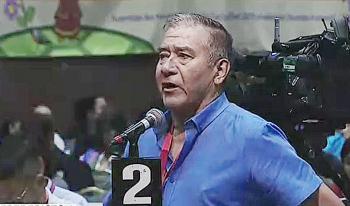Image Caption
Summary
Windspeaker.com Contributor
Repeal the Safe Drinking Water for First Nations Act, said the chiefs-in-assembly, who are pushing for the Liberal government to deliver on that pre-election promise.
However, chiefs insisted that any new legislation would not involve co-development as stated in Resolution 1, Endorsement of the Refined Preliminary Concepts for Repeal and Replacement of the Safe Drinking Water for First Nations Act.
The discussion over two days on the resolution concluded July 24 with chiefs agreeing by consensus to replace the “co-development process” with an “affirmation and assertion process.”
Ontario Regional Chief RoseAnne Archibald, who co-holds the housing, water and emergency management portfolio, said the word “co-development” and the concept of co-development was not being looked at favourably by chiefs.
She said federal and provincial governments needed to be reminded that First Nations had not extinguished their rights, interests and title to waters and waterbodies.
“I don’t get the co-development language,” said Kahnawake Grand Chief Joe Norton. “This co-development process is going to be ours, and we will tell (the government) what to do.”
“Regardless of what we call this First Nation-led process, our voice must inform the legislation,” said Archibald.
However, chiefs were firm in that it did matter what the process was called and it would not be called co-development.
The Safe Drinking Water Act came into force under the Conservative government in 2013.
It was brought in without First Nation input, said Archibald, and fails to address water issues beyond stop-gap or short term measures.
Years of government neglect, she said, requires large investments to deal with the issues in a comprehensive manner that will lead to permanent solutions.
Improvements also had to be resilient to survive climate change, she said.
Chiefs were presented with a refined preliminary concepts paper, with information garnered from feedback, insights and concerns provided by First Nations through a national engagement process held the spring and summer of 2019.
The resolution directed the AFN to conduct follow-up engagement with First Nations throughout 2019 and 2020 on key issues and concerns as well as regional or local First Nations water initiatives that may be impacted or supported by the repeal and replacement of the Safe Drinking Water for First Nations Act.
The resolution also directed the AFN to “seek sufficient resources” for the follow-up engagement process with First Nations, along with a future affirmation and assertion process with the federal government.
Archibald stressed that any solutions that were determined for safe drinking water and wastewater management had to go beyond politics and beyond the government of the day.
“Water is important to all of us, to all of our nations. We must keep on fighting for clean water and not the Band-Aid fixes just to get the numbers down for the government,” said Burns Lake Chief Dan George, who moved the resolution. “We need to keep on working for all of our people throughout Canada.”
The AFN Chiefs-In-Assembly have passed resolutions since 2017 calling for a First Nations led process for safe drinking water legislation.

